Industrial Construction System in Intelligent Construction
Industrial construction plays a vital role in the field of intelligent construction by incorporating advanced technologies and innovative solutions to enhance efficiency, safety, and sustainability in the construction of industrial facilities.
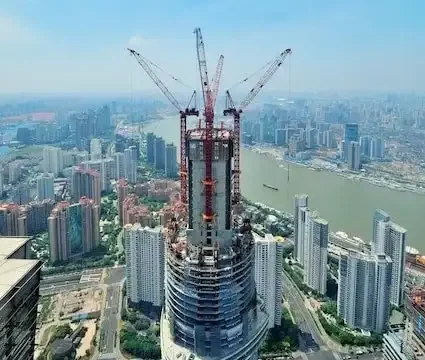
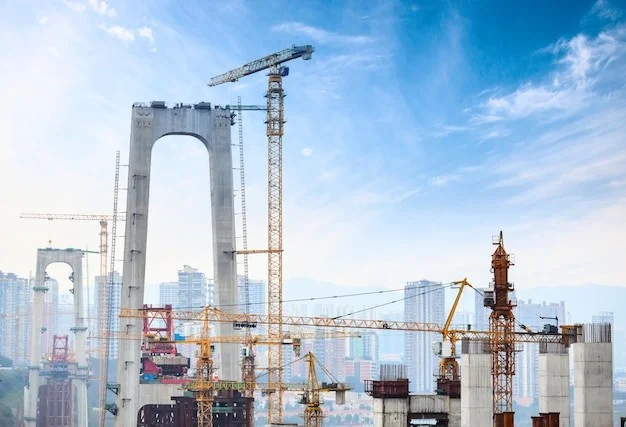
Transforming the Landscape for industrial construction with intelligent construction
Key Features of Industrial Construction in Intelligent Construction:
- Advanced Automation: Intelligent construction in industrial settings often involves the use of automation and robotics for tasks such as welding, assembly, and material handling. This improves precision and reduces labor costs.
- Smart Factories: Industrial construction focuses on creating smart factories equipped with IoT sensors and data analytics to optimize production processes, monitor equipment health, and improve overall efficiency.
- Green and Sustainable Practices: Intelligent industrial construction places a strong emphasis on sustainability by incorporating eco-friendly materials, energy-efficient systems, and renewable energy sources to reduce environmental impact.
- Modular Construction: The use of modular construction techniques is common in industrial settings, allowing for quicker project completion and easier future expansions or modifications.
- Safety Measures: Intelligent construction prioritizes safety in industrial projects by utilizing technologies such as AI-powered safety monitoring systems, wearable devices, and automated safety checks.
Heavy Duty Machinery System:
Heavy-duty machinery systems in intelligent construction refer to the integration of advanced technology and automation in heavy machinery and equipment used in construction projects. These systems are designed to enhance the efficiency, safety, and productivity of construction operations.
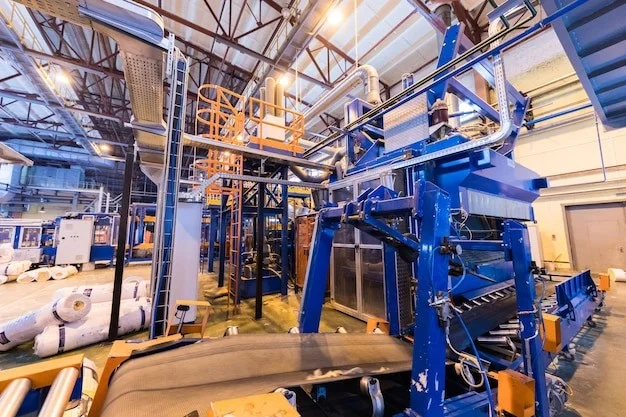
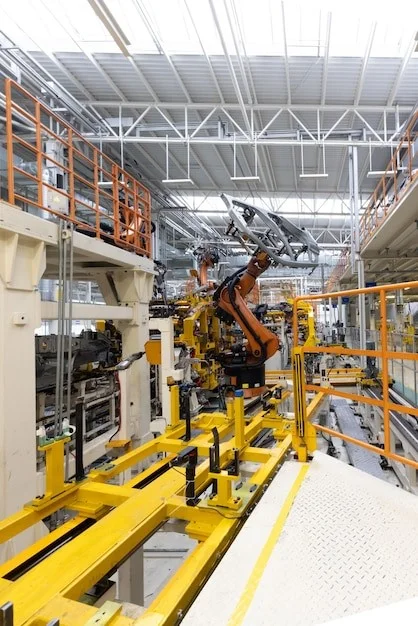
Smart Machines at Work
Here are key Components and Features of Heavy-Duty Machinery Systems in Intelligent Construction:
- Telematics and GPS Tracking: Heavy machinery is equipped with GPS and telematics systems that provide real-time location tracking, fuel monitoring, and equipment performance data. This allows for better fleet management and operational optimization.
- Remote Operation: Some heavy machinery systems can be operated remotely, reducing the need for human operators to be physically present on the machinery. This can improve safety in hazardous environments.
- Data Integration: Data from heavy machinery is integrated into construction management software and Building Information Modeling (BIM) systems. This data can be used for project planning, scheduling, and decision-making.
- Predictive Maintenance: Intelligent heavy machinery systems use sensors and data analytics to predict when equipment maintenance is needed, reducing downtime and costly repairs
Working of Heavy-duty Machinery Systems in IntellConstruct:
- Telematics and GPS Tracking: These systems use GPS technology to track the location of heavy machinery in real-time. Telematics devices installed in the equipment collect data on factors like location, fuel consumption, engine performance, and maintenance needs. This data is transmitted to a central control system, allowing operators and managers to monitor and analyze the machinery’s performance.
- Remote Operation: Some heavy machinery can be operated remotely through a control center. Operators use specialized software and interfaces to control the equipment, making it possible to perform tasks in hazardous or hard-to-reach areas while keeping operators safe.
- Data Integration: Data from heavy machinery is integrated into construction management software and BIM systems. This integration enables project managers to track progress, monitor resource allocation, and make informed decisions based on real-time data. BIM models can be updated with the machinery’s actual position and progress, helping with project coordination.
Applications of Heavy-Duty Machinery System In Construction:
- Excavation and Earthmoving: Heavy-duty machinery systems, including excavators, bulldozers, and graders, use advanced automation and GPS technology for precise excavation and earthmoving. They ensure accurate grading and leveling of construction sites while minimizing human error.
- Material Handling: Cranes, forklifts, and material handling equipment are equipped with intelligent systems that enhance load control, optimize lifting operations, and improve safety. Automated systems can also help with stockpile management.
- Concrete Placement: Concrete pump trucks and mixers utilize automation to control the flow and placement of concrete. This results in more consistent and uniform concrete pours, reducing waste and improving construction quality.
- Road Construction: Heavy-duty machinery systems are extensively used in road construction, where they assist in tasks such as road grading, asphalt paving, and compacting. These systems ensure road surfaces meet design specifications.
- Tunneling and Underground Construction: Tunnel boring machines (TBMs) incorporate automation and remote control for tunnel excavation in challenging conditions. These machines enable the construction of tunnels for transportation and utilities.
Water and Wastewater Construction Systems:
Water and wastewater construction in intelligent construction refers to the design, implementation, and management of infrastructure projects related to water supply, treatment, distribution, and wastewater collection, treatment, and disposal. Intelligent construction techniques and technologies are applied to these projects to improve efficiency, sustainability, and overall performance.
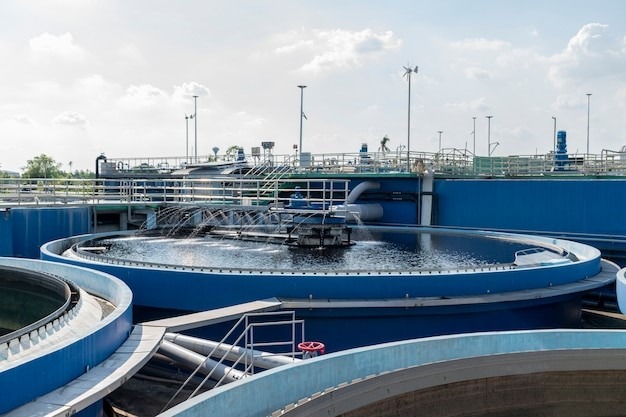
Intelligent construction in Water Management for smart approach
Key Aspects of Water and Wastewater Construction in Intelligent Construction:
- Advanced Water Treatment: Intelligent construction incorporates state-of-the-art water treatment facilities that utilize automation, sensors, and real-time monitoring to ensure the quality of drinking water. Advanced filtration systems and chemical dosing are optimized to remove contaminants and maintain water safety standards.
- Smart Water Distribution: Intelligent construction includes the installation of smart water distribution systems. These systems use sensors to detect leaks, monitor water pressure, and control water flow to reduce wastage and improve the overall efficiency of water distribution.
- Sewer Systems and Wastewater Treatment: Intelligent wastewater construction focuses on efficient sewage collection and treatment. Modern wastewater treatment plants are equipped with automation, real-time monitoring, and remote-control systems to optimize the treatment process, reduce energy consumption, and minimize environmental impact.
- Storm water Management: Intelligent construction considers sustainable storm water management practices. This involves the use of permeable pavements, green infrastructure, and smart storm water detention systems to reduce flooding, improve water quality, and enhance urban resilience.
Working of Water and Wastewater Construction in IntellConstruct:
- Energy Efficiency: Water and wastewater infrastructure in intelligent construction are designed to be energy efficient. Variable speed drives and energy recovery systems are employed to minimize energy consumption. Solar panels and other renewable energy sources may be integrated to reduce the carbon footprint.
- Water Quality Management: Advanced treatment processes, such as membrane filtration and UV disinfection, are used to ensure high water quality standards. Real-time monitoring helps detect deviations from water quality parameters, allowing for rapid response to potential issues.
- Data Integration: Data collected from sensors and monitoring systems are integrated into a centralized data management platform. This allows for data analysis, reporting, and decision-making by water utility management.
- Emergency Response: In the event of emergencies such as water main breaks or contamination incidents, intelligent systems can provide rapid alerts and assist in isolating affected areas and mitigating the impact.
Applications of Water and Wastewater Construction in Intelligent Construction:
- Municipal Water Supply: Intelligent construction is used to design, build, and manage municipal water supply systems, ensuring a consistent and safe water supply for residential, commercial, and industrial use. Smart water distribution systems help detect leaks, optimize pressure, and reduce water loss.
- Wastewater Treatment Plants: Advanced technologies are applied in the construction of wastewater treatment plants to improve the treatment process, reduce energy consumption, and minimize the environmental impact of treated effluent. Real-time monitoring and control systems enhance the efficiency of treatment processes.
- Industrial Water Management: Many industries rely on intelligent construction to design and implement water recycling and reuse systems. These systems reduce freshwater consumption, lower wastewater disposal costs, and enhance sustainability.
- Storm water Management: Construction of intelligent storm water management systems involves the use of green infrastructure, permeable pavements, and smart detention basins. These systems help reduce flooding, improve water quality, and mitigate the impact of storm events on urban areas.
Oil & Gas Construction Systems:
Oil and gas construction in the context of intelligent construction refers to the specialized construction activities related to the development and maintenance of facilities in the oil and gas industry. These projects involve the construction of various structures and infrastructure required for the exploration, production, refining, and distribution of oil and natural gas resources. Intelligent construction techniques are increasingly applied in the oil and gas sector to improve efficiency, safety, and environmental sustainability.
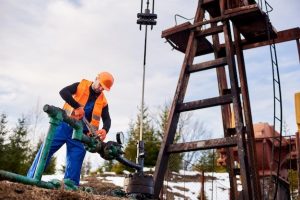

Balancing Tradition with Technology in Oil and Gas Construction
Here are some Key Aspects of Oil and Gas Construction in Intelligent Construction:
- Exploration and Drilling: Intelligent construction methods are used in the construction of drilling platforms, offshore rigs, and well sites. These construction projects require advanced technologies to ensure stability, safety, and environmental compliance.
- Pipeline Construction: Building and maintaining pipelines for the transportation of oil and gas require intelligent construction practices. Automation and remote monitoring help ensure the integrity and efficiency of these critical infrastructure systems.
- Refineries and Petrochemical Plants: The construction of refineries and petrochemical plants involves intricate engineering and intelligent construction techniques to create complex processing facilities. Smart construction methods ensure high safety standards and operational efficiency.
- LNG (Liquefied Natural Gas) Facilities: The construction of LNG export terminals and liquefaction plants involves advanced technology for handling extremely cold temperatures and ensuring the safe storage and transportation of liquefied natural gas.
Working Oil & Gas Construction Systems in Intelligent Construction:
- Digital Twinning: Intelligent construction systems create digital twins of oil and gas facilities, which are virtual replicas of physical assets. These digital twins allow for real-time monitoring, simulation, and analysis, enabling better decision-making and predictive maintenance.
- Advanced Project Management: Intelligent construction systems use project management software and tools to optimize scheduling, resource allocation, and cost estimation. This helps ensure that projects are completed on time and within budget.
- BIM (Building Information Modeling): BIM is extensively used in oil and gas construction to create 3D models of facilities, including pipelines, refineries, and drilling platforms. BIM improves design accuracy, coordination, and clash detection.
- Automation and Robotics: Automation technologies and robotics are used for tasks such as welding, inspection, and material handling in the construction of oil and gas facilities. These technologies improve precision and safety.
Applications of Oil & Gas Construction in Intelligent Construction:
- Digital Twinning: Creating digital replicas of oil and gas facilities allows for real-time monitoring and simulation. It’s used for design validation, maintenance planning, and performance optimization.
- Automated Drilling: Automated drilling systems use sensors and control algorithms to optimize drilling operations. They can adjust drilling parameters in real time for greater precision and efficiency.
- Pipeline Monitoring: Intelligent construction systems incorporate sensors along pipelines to monitor for leaks, corrosion, and pressure changes. This data helps operators detect and address issues promptly.
- Smart Well Systems: Smart well technology uses sensors to monitor and control well conditions. It enables remote adjustments of flow rates, optimizing production and reducing downtime.
Power Generation Construction System:
Power Generation Construction Systems in intelligent construction refer to the use of advanced technologies and methodologies in the planning, design, and construction of power generation facilities, such as power plants and renewable energy installations. These systems aim to improve efficiency, safety, sustainability, and overall performance throughout the lifecycle of power generation projects.
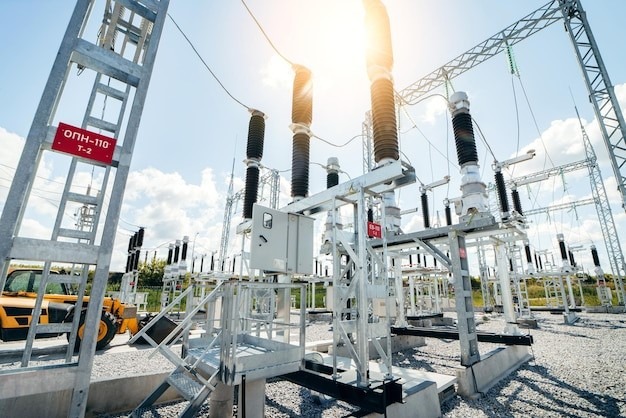
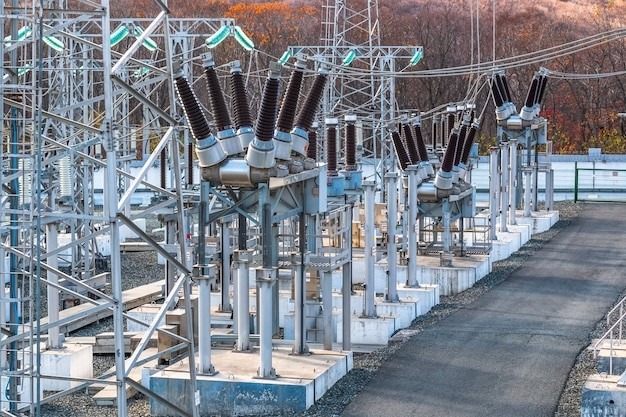
Smart Systems used in Transforming Power Generation
Key Aspects of Power Generation Construction Systems in the Context of Intelligent Construction:
- Advanced Design and Modeling: Intelligent construction utilizes advanced software and tools, including Building Information Modeling (BIM) and digital twin technology, to create highly accurate and detailed models of power generation facilities. This aids in design optimization and project planning.
- Smart Grid Integration: Power generation systems are increasingly integrated with smart grid technologies, allowing for better control, monitoring, and optimization of energy production and distribution.
- Renewable Energy Integration: In the context of renewable energy, intelligent construction systems play a critical role in designing and building solar farms, wind farms, and other clean energy projects. These systems focus on optimizing energy capture and storage.
- Predictive Maintenance: Predictive maintenance techniques, often powered by artificial Intelligent and IoT sensors, are used to monitor the health of power generation equipment and predict maintenance needs, reducing downtime and operational costs.
Working of Power Generation Construction Systems in Intelligent Construction:
Project Planning and Design:
- Data Gathering: The process begins with comprehensive data gathering, including site assessments, environmental impact studies, and energy demand analysis.
- Digital Modeling: Advanced software, like Building Information Modeling (BIM), is used to create detailed digital models of the power generation facility. These models include information about the physical structure, equipment, systems, and more.
Construction and Installation:
- Automation: Automation plays a crucial role in construction, with robots and automated machinery used for tasks like excavation, concrete pouring, and material handling. This reduces labor costs and enhances precision.
- Modular Construction: Modular construction techniques may be employed, where components of the facility are manufactured off-site and assembled on-site. This speeds up construction and ensures quality control.
Energy Efficiency and Sustainability:
- Energy-Efficient Equipment: High-efficiency equipment and systems are installed to maximize energy generation while minimizing waste.
- Renewable Energy Integration: In the case of renewable energy projects, solar panels, wind turbines, and energy storage systems are strategically placed and connected to the grid.
Applications of Power Generation Construction in Intelligent Construction:
- Traditional Power Plants: Traditional power plants, such as coal, natural gas, or nuclear power plants, benefit from intelligent construction systems that enhance safety, efficiency, and environmental compliance. Advanced automation and predictive maintenance can improve the overall performance and lifespan of these facilities.
- Renewable Energy Installations: Intelligent construction plays a significant role in the development of renewable energy projects, including solar farms, wind farms, and hydroelectric plants. These projects require precise design and construction to maximize energy capture and sustainability.
- Smart Grid Integration: The construction of intelligent power grids, known as smart grids, involves the implementation of advanced technologies to monitor, control, and optimize the distribution of electricity. Intelligent construction is crucial in building and expanding these grids efficiently.
- Energy Storage Facilities: Power generation construction systems are applied to the development of energy storage facilities, such as battery storage farms.